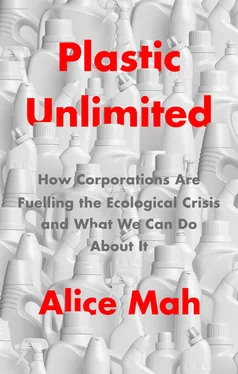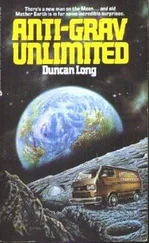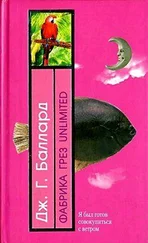The adage ‘never let a good crisis go to waste’ has been widely attributed to Winston Churchill, who is said to have made this comment during the Yalta Conference with Stalin and Roosevelt near the end of the Second World War. 75During the financial crisis of 2008, Rahm Emanuel, Obama’s Chief of Staff, also used this expression, and it has since become popular among business and political leaders. 76In February 2020, Bernard Looney, the newly appointed CEO of British Petroleum (BP), quoted the ‘great Winston Churchill phrase’ in his keynote address at International Petroleum (IP) Week in London, talking about the climate crisis ‘as an opportunity for the industry to significantly reshape how it works’. 77Not surprisingly, the phrase has also invited more critical interpretations. In Never Let a Serious Crisis Go to Waste , historian Philip Mirowski argues that neoliberals survived the 2008 Great Recession by using the opportunity of the crisis to consolidate power. 78Naomi Klein makes a related argument in The Shock Doctrine , detailing how political and economic elites have exploited the upheavals of national disasters to push forward controversial neoliberal free market policies. 79
The idea that capitalism is well equipped to accommodate crisis is very familiar among social scientists. It is such a common trope that many scholars avoid the term ‘crisis’ altogether. For example, the anthropologist Joe Masco argues that ‘“crisis” has become a counterrevolutionary idiom in the twenty-first century, a means of stabilizing an existing condition rather than minimizing forms of violence across militarism, economy, and the environment’. 80In Pollution Is Colonialism , interdisciplinary plastic pollution scholar Max Liboiron characterizes ‘crisis as a relational model that puts certain things beyond dispute in the imperative to act at all costs’. 81In a similar vein, environmental scholar-activists Matt Hern and Am Johal caution that ‘[c]risis invokes an emergency where debate is suspended, reflection limited, and objections marginalized. The implications of invoking a climate crisis are all too vivid: it is into this breach where hegemonic states and capital step so easily and so reassuringly.’ 82Other scholars suggest that the plastic waste crisis, in particular, suffers from inaction due to the ‘environmental crisis industry’, which ‘perpetuates stasis in the face of environmental catastrophe’. 83
Indeed, political and economic elites are constantly poised to seize the opportunities of crisis to gain power and wealth. But why should we relinquish talk of crisis to elites? I am not convinced that the imperative to act on the ecological crisis requires suspending debate or limiting reflection. On the contrary, it requires deeper debate and reflection, even if the timescales are tight.
I am also worried about a related trend: the normalization of crisis. In May 2019, the Guardian wrote that they were changing their house style for referring to the climate: ‘Instead of “climate change” the preferred terms are “climate emergency, crisis or breakdown” and “global heating” is favoured over “global warming”.’ 84This was part of a broader shift towards perpetual talk of crisis in the media and public culture. However, the way that the media both sensationalizes and normalizes crisis has the danger of desensitizing us, robbing us of the power to even elicit a response. Hence there is crisis fatigue, a state of exhaustion, which has deepened through the waves of the pandemic. It is both literal, for the great number of people who have struggled every day to cope and to survive, and psychological, for those who have observed the unfolding disasters from a distance, full of feelings of anxiety and powerlessness.
Yet the reality, injustice, and urgency of crisis cannot be avoided. We must tackle the source of the plastics crisis in order to mitigate the worst impacts of the ecological catastrophe. The plastics crisis, and public responses to it, did not simply arrive in the world over the last few years. Since the 1970s, a number of social and environmental movements have tried to limit harmful plastics production and pollution. Global media attention to the plastics crisis has raised levels of anti-plastic activism around the world. Some of this momentum has continued through the pandemic, with calls for a new global treaty on plastic pollution. 85Yet in spite of the surge of legislation and activism, the plastics crisis is only getting worse. The rate of plastics growth is exponential, and it appears to be unstoppable. The obstacle is not one of inaction, but one of entanglement.
For all of the toxicity and pollution associated with plastic, it is difficult to imagine living without it. Plastic is essential to modern life, from computers to washing machines to food supplies and medical equipment. COVID-19 has been an important reminder of this fact. Yet most plastic is not essential. Nor does it have to be. To disentangle ourselves from toxic and wasteful plastics, we need to retrace the steps of our entanglement, starting with the corporations.
This book examines how corporations across the plastics value chain have fought to secure and grow toxic, wasteful, and carbon-intensive processes and markets despite a series of crises: plastic toxicity ( chapter 2), marine plastic waste ( chapter 3), the climate emergency ( chapter 4), the COVID-19 pandemic ( chapter 5), and the cumulative plastics crisis ( chapter 6). Drawing on publicly available corporate materials, observations at industry events, and interviews with industry representatives, 86in addition to a range of scholarly, media, NGO, and policy sources, the book focuses on the dominant corporate players and alliances that have mobilized in each case, which differ depending on which markets have been threatened. For example, the noxious petrochemical industry has covered up plastics toxicity, the leading plastics bag producers have actively opposed plastic bag bans, oil majors have funded climate change denial, and multinational beverage brands have opposed bottle deposit schemes. On a systemic level, the relentless corporate drive to expand petrochemical production and to seek out new plastics markets has been underpinned by a reliance on shifting the toxic burdens of pollution and waste disposal onto the most vulnerable populations. Rather than seeing crisis as a means for elites to stabilize the status quo, this book argues that we need to confront the corporate roots of the crisis to bring about systemic change.
1 1 Pew Charitable Trusts and SYSTEMIQ, Breaking the Plastic Wave: A Comprehensive Assessment of Pathways Towards Stopping Ocean Pollution (2020).
2 2 Estimates vary depending on different sources. See: Laura Parker, ‘Fast Facts About Plastic Pollution’, National Geographic, 20 December 2018, at https://www.nationalgeographic.com/science/article/plastics-facts-infographics-ocean-pollution.
3 3 International Energy Agency, The Future of Petrochemicals (2018), at https://www.iea.org/reports/the-future-of-petrochemicals.
4 4 Andrew Inkpen and Kannan Ramaswamy, ‘Breaking Up Global Value Chains: Evidence from the Oil and Gas Industry’, Advances in International Management, 30 (2017): 55–80.
5 5 Mark Eramo, ‘Global Chemical Industry Outlook: Assessing Today’s Strong Markets and Preparing for the 2020s’, IHS Markit, 3 August 2018, at https://ihsmarkit.com/research-analysis/global-chemical-industry-outlook-2020.html.
6 6 Divy Malik, Parth Manchanda, Theo Jan Simons, and Jeremy Wallach, ‘The Impact of COVID-19 on the Global Petrochemical Industry’, McKinsey, 28 October 2020, at https://www.mckinsey.com/industries/chemicals/our-insights/the-impact-of-covid-19-on-the-global-petrochemical-industry.
Читать дальше












